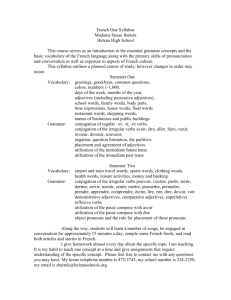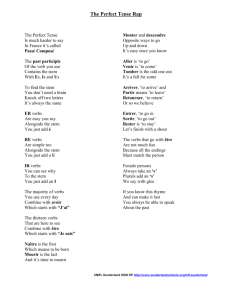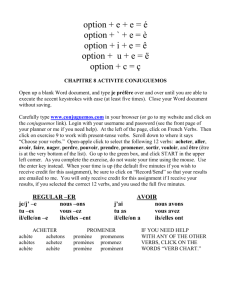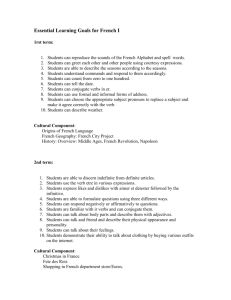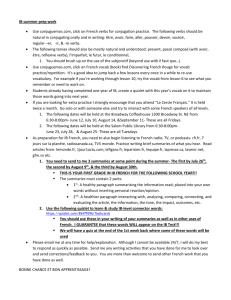How to memorize the “être” verbs?
advertisement
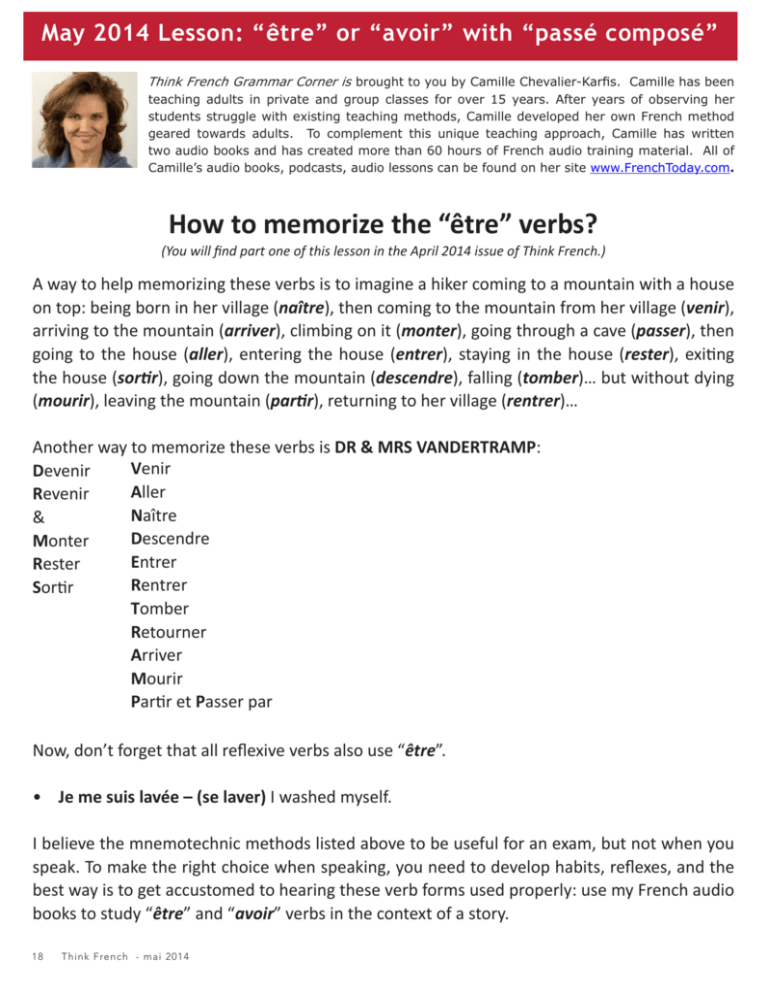
May 2014 Lesson: “être” or “avoir” with “passé composé” Think French Grammar Corner is brought to you by Camille Chevalier-Karfis. Camille has been teaching adults in private and group classes for over 15 years. After years of observing her students struggle with existing teaching methods, Camille developed her own French method geared towards adults. To complement this unique teaching approach, Camille has written two audio books and has created more than 60 hours of French audio training material. All of Camille’s audio books, podcasts, audio lessons can be found on her site www.FrenchToday.com. How to memorize the “être” verbs? (You will find part one of this lesson in the April 2014 issue of Think French.) A way to help memorizing these verbs is to imagine a hiker coming to a mountain with a house on top: being born in her village (naître), then coming to the mountain from her village (venir), arriving to the mountain (arriver), climbing on it (monter), going through a cave (passer), then going to the house (aller), entering the house (entrer), staying in the house (rester), exiting the house (sortir), going down the mountain (descendre), falling (tomber)… but without dying (mourir), leaving the mountain (partir), returning to her village (rentrer)… Another way to memorize these verbs is DR & MRS VANDERTRAMP: Venir Devenir Aller Revenir Naître & Descendre Monter Entrer Rester Rentrer Sortir Tomber Retourner Arriver Mourir Partir et Passer par Now, don’t forget that all reflexive verbs also use “être”. • Je me suis lavée – (se laver) I washed myself. I believe the mnemotechnic methods listed above to be useful for an exam, but not when you speak. To make the right choice when speaking, you need to develop habits, reflexes, and the best way is to get accustomed to hearing these verb forms used properly: use my French audio books to study “être” and “avoir” verbs in the context of a story. 18 T hin k Fre nch - ma i 2 0 1 4 “Être” is the verb of the subject, “avoir” of the direct object Now let’s go a bit deeper into grammar. I like to tell my students that “être” is the verb of the subject, and “avoir” the verb of the direct object. “Être” is “allergic” to direct object: see what happens now… Many of the verbs above can be used in an “idiomatic” way, with a meaning which is twisted from their original meaning. To say to take something down, in, out, up… we also use these verbs: • Descendre la poubelle: to take the garbage downstairs • Monter la valise: to take the suitcase upstairs • Sortir les chiens: to take the dogs out • Rentrer la voiture: to put the car inside the garage Also • Passer + time = to spend + time So now, you are going to have a direct object: la poubelle, la valise… Can you guess which verb you’ll use to make passé composé? “Avoir”, that’s right! When “être” verbs use “avoir” • • • • • J’ai descendu le sac: I took the bag downstairs J’ai monté l’escalier: I went up the stairs J’ai sorti la voiture: I took the car outside J’ai rentré les jouets: I took the toys inside J’ai passé le weekend à Paris: I spent the weekend in Paris Note: there are many idiomatic meanings of these verbs + direct object: • Descendre quelqu’un: to diss someone, also to kill someone • Monter + someting: to build something up, • Recently a popular song said “tomber la chemise” to say to remove one’s shirt… Reflexive verbs + direct object Some reflexive verbs can be used by a direct object, in particular part of the body. In this case, you will still use “être”, but there will be no agreement: not with the subject, not with the direct object… • Camille s’est lavé les mains – Camille washed her hands. Note also that we say “she washed (herself) THE hands”, not as in English “she washed HER hands”, we use a definite article, not a possessive adjective. w w w. t h i n k f re n c h . c o m 19
